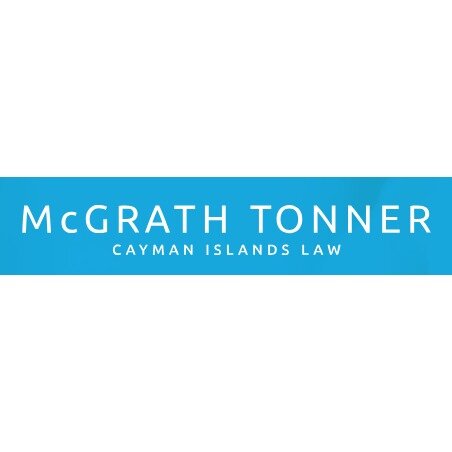Best Lawsuits & Disputes Lawyers in George Town
Share your needs with us, get contacted by law firms.
Free. Takes 2 min.
List of the best lawyers in George Town, Cayman Islands
About Lawsuits & Disputes Law in George Town, Cayman Islands
The legal framework surrounding lawsuits and disputes in George Town, the capital of the Cayman Islands, is largely based on the principles of English common law, complemented by local statutes. This system governs matters ranging from civil claims, commercial disputes, to more personal issues such as family law disputes. Given the Cayman Islands' status as a leading offshore financial center, its courts often deal with complex international and corporate litigation.
Why You May Need a Lawyer
Individuals and businesses may require legal help in a variety of situations involving disputes. If you face a contract disagreement, a property dispute, an employment issue, or any other type of conflict that could lead to litigation, it's important to consult a lawyer. A lawyer can assist you through court procedures, negotiations, and can advise you on the strengths and weaknesses of your case. Furthermore, for businesses involved in cross-border disputes or international arbitration, legal representation is crucial due to the complexities of such cases.
Local Laws Overview
In George Town, as in other parts of the Cayman Islands, local laws that frequently come into play in lawsuits and disputes include the Cayman Islands Constitution Order, the Rules of the Grand Court, various statutes governing corporate and financial services, and enactments dealing with property, employment, and family law. It is particularly important to note that the limitation periods for bringing claims can vary significantly depending on the particular cause of action. For example, for breach of contract and tort claims, the general limitation period is six years from the date of the cause of action arising.
Frequently Asked Questions
What is the structure of the court system in George Town?
The Cayman Islands court system consists of the Summary Court, the Grand Court, the Court of Appeal, and the privilege of final appeal to the Judicial Committee of the Privy Council in London. The Grand Court handles serious civil litigation and disputes, while the Summary Court generally deals with less complex and lower-value claims.
Can I represent myself in court?
While you are entitled to represent yourself in court, it is strongly recommended to engage a lawyer due to the complexities of legal proceedings and the risks associated with self-representation, especially in cases involving substantial financial interests or technical points of law.
How long do I have to file a lawsuit?
The limitation period for filing a lawsuit in George Town varies by claim type but is typically six years for contract and tort claims. However, there are exceptions, and specific circumstances can alter this period, so consultation with a legal professional is advised.
What should I consider before filing a lawsuit?
Before filing a lawsuit, consider the merits of your case, the evidentiary support available, the financial implications, potential remedies, and the possibility for settlement. It's also crucial to understand the potential duration of litigation and its impact on your personal or business affairs.
How does alternative dispute resolution work in the Cayman Islands?
Alternative Dispute Resolution (ADR), including mediation and arbitration, is increasingly popular in George Town as a means to resolve disputes without resorting to litigation. These processes are often more confidential, less formal, and can be quicker and more cost-effective than court proceedings.
What is the role of a lawyer in dispute resolution?
A lawyer's role in dispute resolution is to advise clients on their legal rights and options, represent them in negotiations or ADR processes, and advocate on their behalf in court if necessary. They can also draft and review legal documents pertinent to the dispute.
Are there any restrictions on parties from overseas litigating in George Town?
There are no specific restrictions on overseas parties litigating in George Town; however, they may be required to provide security for costs, especially when they have no assets within the jurisdiction.
What types of damages can be awarded in a civil lawsuit?
In civil lawsuits, the courts in George Town can award compensatory damages meant to put the plaintiff in the position they would have been but for the defendant's wrongful act. Other types of damages, like punitive or exemplary damages, are less common and awarded only in specific circumstances.
Can a lawsuit be appealed?
Yes, decisions from the lower courts can generally be appealed to the higher courts, with the Court of Appeal being the intermediate appellate court and the Privy Council serving as the final appellate body.
What is the impact of litigation on a business?
Businesses involved in litigation may face financial costs, potential reputational damage, and disruption to operations. Proactive legal advice and risk management are key to minimizing the negative impact of litigation.
Additional Resources
For individuals seeking more information about lawsuits and disputes in George Town, the Cayman Islands Judicial Administration website provides a wealth of information, including court rules and procedures. The Cayman Islands Law Society and the Caymanian Bar Association can aid in finding qualified legal professionals and offer guidance on legal matters.
Next Steps
If you need legal assistance with a lawsuit or dispute in George Town, the first step is to consult a local attorney who specializes in the area of law relevant to your case. They will help you understand your rights, evaluate your claim, and outline a strategy tailored to your unique circumstances. Be prepared to provide your lawyer with all relevant documentation and a clear account of any events pertinent to your dispute.
Lawzana helps you find the best lawyers and law firms in George Town through a curated and pre-screened list of qualified legal professionals. Our platform offers rankings and detailed profiles of attorneys and law firms, allowing you to compare based on practice areas, including Lawsuits & Disputes, experience, and client feedback.
Each profile includes a description of the firm's areas of practice, client reviews, team members and partners, year of establishment, spoken languages, office locations, contact information, social media presence, and any published articles or resources. Most firms on our platform speak English and are experienced in both local and international legal matters.
Get a quote from top-rated law firms in George Town, Cayman Islands — quickly, securely, and without unnecessary hassle.
Disclaimer:
The information provided on this page is for general informational purposes only and does not constitute legal advice. While we strive to ensure the accuracy and relevance of the content, legal information may change over time, and interpretations of the law can vary. You should always consult with a qualified legal professional for advice specific to your situation.
We disclaim all liability for actions taken or not taken based on the content of this page. If you believe any information is incorrect or outdated, please contact us, and we will review and update it where appropriate.
Browse lawsuits & disputes law firms by service in George Town, Cayman Islands
George Town, Cayman Islands Attorneys in related practice areas.

















